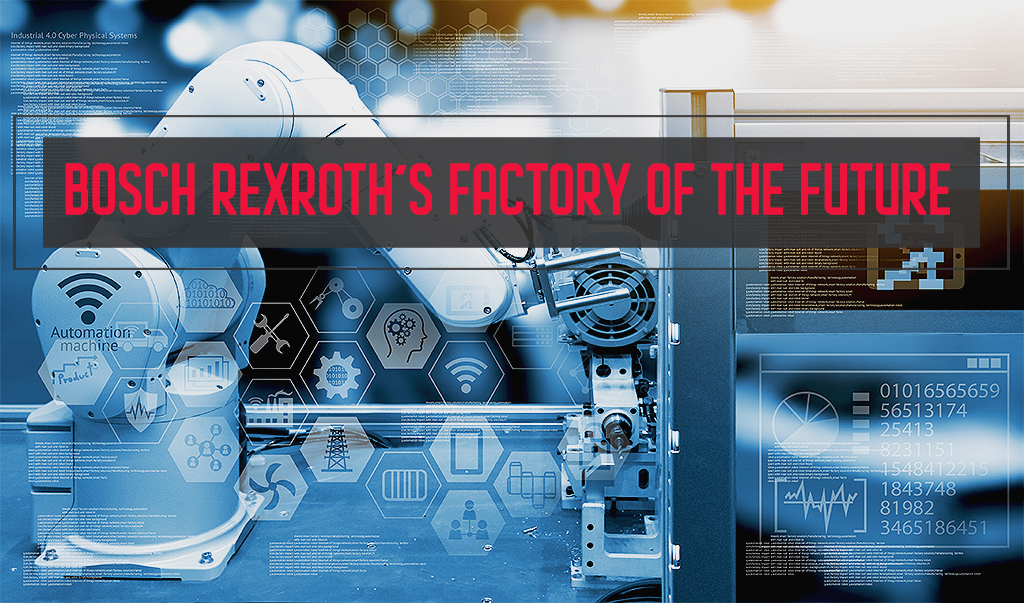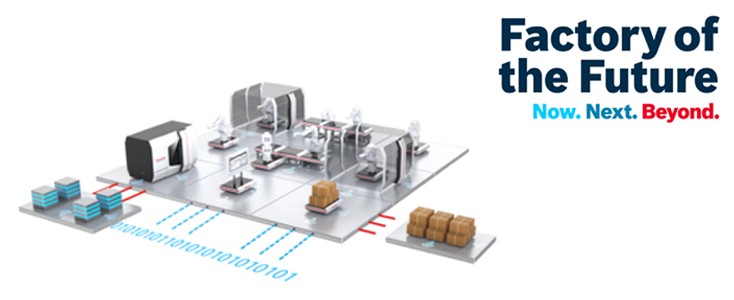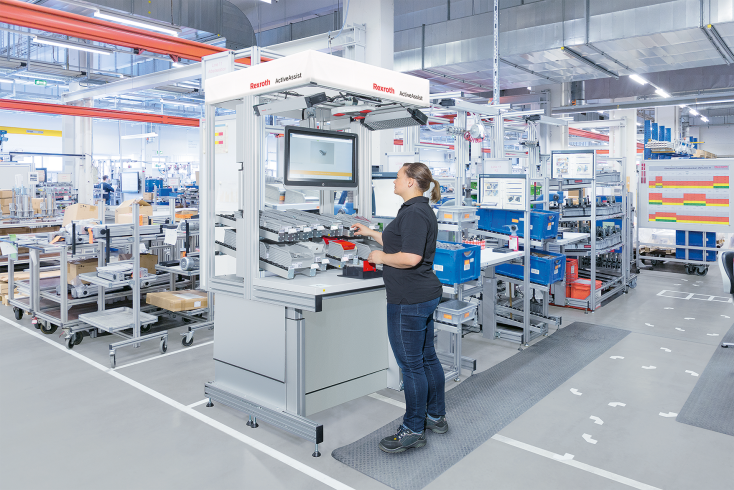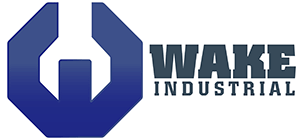The Factory of the Future
7 January, 2020

Bosch Rexroth's Future Factory Demonstrator

Bosch Rexroth and Industry 4.0 Industrial Transformation
Rexroth Indramat was acquired by Robert Bosch GmbH in 2001, and since, the company name was changed to Bosch Rexroth. Bosch Rexroth is an industry leader when it comes to drive and control technologies with a unique history going back over 200 years. If you’re looking for cutting-edge technology, then look no further than Bosch Rexroth.
The automation industry owes Bosch Rexroth’s products recognition for leading the charge in the production of smart factory automation products. Backed by a fantastic engineering staff and technical team, Rexroth products guarantee a personal service experience and fast shipping times on all of their quality products.
The Bosch Rexroth Vision
Rexroth’s vision is all about manufacturing reimagined. The traditional view of having machines fixed to floor mounts in between walkways will become a thing of the past. The brick and mortar shell will be the only fixed element of manufacturing plants. Everything else will be mobile and modular. The floor will become an inductive charging system to power the machine without wires. Communications will be wireless andwill implement a full 5G telecommunications system between machines internally. 5G external systems will be used to send data to remote cloud warehouses for further analysis. Rexroth will approach the transformation of manufacturing in such a way that both small businesses (SMBs) and large businesses will benefit. SMB’s will focus on a phased transition approach for critical products one at a time to amortize the investment over time.
Bosch Rexroth Factory of the Future Demonstrator

The factory of the future is vital to the Bosch Rexroth customer-base to remain competitive in their respective industry verticals. Rexroth has put forth commitment and vision to support both small businesses and large manufacturing companies at the same service level. They do this even in light of the fact that many small companies have higher priority concerns over updating to a smart factory system and, overall, growing their automation lines. Rexroth’s vision seeks to answer small manufacturer’s dilemmas by asking “How can we do this better?” and “How can we more cheaply put this technology in the hands of manufacturers at all levels?”
The smart factory demonstrator depicted in the image above represents a tangible strategy of how the automation supplier may accomplish their goal. Through collaboration with other companies and distributors, Bosch Rexroth believes they can make their vision a reality. Rexroth has, in an effort to show their customers, started developing ways to deliver products more quickly to the global market. The image above shows Rexroth’s development of the automation modules in conjunction with the German Research Center for Artificial Intelligence (DFKI). Bosch Rexroth has also become a member of SmartFactory KLEV, a nonprofit demonstration and research association in Europe which aims to make the future of automation available to all manufactures, both big and small.
Leveraging the power of assets, like the factory demonstrator, Bosch Rexroth can maintain and improve its competitive position as a leading automation parts. Competitors of Rexroth This kind of connected automation is the future of all manufacturing efforts. Automation leads to a faster and more flexible production process, less material wasted, and the reduction of unplanned production line shutdown and complexity.

The strategic use of global partnerships will be necessary for faster adoption and success of the smart factory. The National Manufacturing Initiative in the US is making great strides, but they face the same personnel problems global manufacturers face in moving forward. Many people still do not realize the capabilities of the smart factory. People with professional automation skills in the USA are in short supply. They already face a 3 year lag time to catch up with current SmartFactory initiatives in Europe. That is what makes maintaining strong global partnerships between manufacturers and countries so important. The lifeblood of the SmartFactory is built around three distinct technological sectors: internet technology, machines and automation, and IT. European efforts are strong in machines and automation (e.g., Bosch Rexroth) while the US dominates information technology (IT). For more intimate details on the Factory Automation Demonstrator, go to this link.
The full capability of the smart factory is still ten years in the future. However, some technologies will mature before others leading to a gradual phasing-in of technologies, resulting in more and more factories improving production capabilities over time.
SmartFactoryKL – Another Bosch Rexroth Effort
The strength of the Smart factory movement is demonstrated by the number of concurrent efforts being carried out across the United States, Europe, and Asia. There are approximately fifty partners in this non-profit venture that is comrpsied of pioneers and visionaries for the factories of tomorrow. Bosch Rexroth is one of them.
SmartfactoryKL is a manufacturer-independent and a one-of-a-kind demonstrator and research platform dedicated to developing innovative technology related to information and communication technologies (ICT). The objective of the organization is to develop ICT products in a realistic, industrial incubator environment. The research of the group is focused on three priority areas organized around three working groups.
- Automation
- Human-Technology Systems
- Digital Production Processes
- Cyber-Physical Porduction Modules
- Connect and Control
- Cognitive Factory

Conclusion
Bosch Rexroth is uniquely positioned to be very effective in Industry 4.0 initiatives, including the smart factory demonstrator. They have been making components for industrial automation production for many years before Industry 4.0. They have an intimate understanding of what it takes to make manufacturing work in the best way possible to meet customer needs. Having that kind of experience involved in smart factory development can only ensure the outcome will meet expectations.










